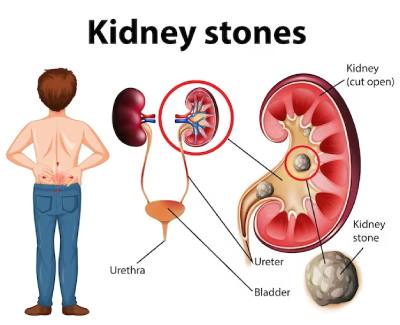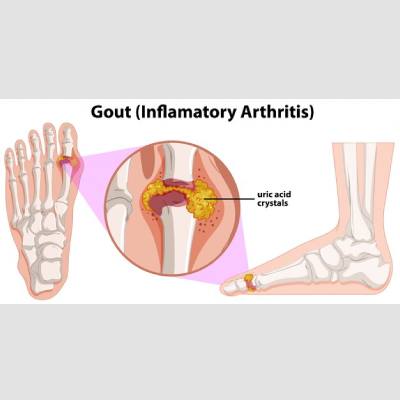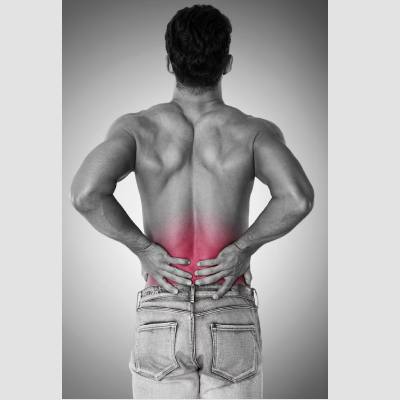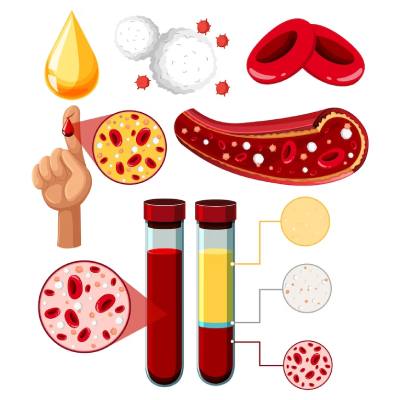Introduction
Kidney stones are a common yet painful condition that can affect people of all ages. These small, hard mineral and salt deposits form in the kidneys and can cause significant discomfort as they pass through the urinary tract. Understanding the causes, symptoms, and available treatments are crucial for managing kidney stones effectively.


Understanding Kidney Stones
Kidney stones arise from the concentration of substances like calcium, oxalate, and phosphorus in the urine, exacerbated by factors such as dehydration, certain diets, genetic predispositions, obesity, and medical conditions like gout and urinary tract infections. Symptoms include intense back or side pain, blood in urine, frequent urination, and persistent urges to urinate.
Causes of Kidney Stones
Kidney stones form when substances like calcium, oxalate, and phosphorus concentrate in the urine due to factors like dehydration, certain diets, family history, obesity, and medical conditions such as gout and urinary tract infections.

High Concentration of Substances
- Calcium, oxalate, and phosphorus in urine become concentrated, leading to stone formation.

Dietary Factors
- Consumption of certain foods, such as high-oxalate items, can contribute to the development of kidney stones.

Obesity
- Being overweight increases the likelihood of stone formation due to altered metabolic processes.

Medical Conditions
- Conditions like gout and urinary tract infections create an environment conducive to stone development.
Dehydration
- Insufficient fluid intake reduces urine volume, promoting the concentration of stone-forming substances.
Genetic Predisposition
- Family history plays a role, with a higher risk if relatives have a history of kidney stones.
Symptoms of Kidney Stones
Kidney stone symptoms include intense back or side pain, often radiating to the lower abdomen and groin. Additional signs may include blood in the urine, frequent urination, and a persistent urge to urinate. The severity depends on the stone's size and location.

Intense Pain
- Severe pain in the back or side, radiating towards the lower abdomen and groin.

Frequent Urination
- Increased urge to urinate frequently, often accompanied by discomfort.
Hematuria (Blood in Urine)
- Visible blood in urine, indicating potential damage to the urinary tract.
Persistent Urge to Urinate
- A constant feeling of needing to urinate, even if the bladder is not full.
Varied Severity
- The intensity of symptoms depends on factors such as stone size and location.
Diagnosis of Kidney Stones
Medical professionals use blood and urine tests, along with imaging studies like X-rays or CT scans, to diagnose kidney stones. Identifying the stone's size and type guides the appropriate treatment approach.
- Blood Tests
- Checking for elevated levels of certain substances that indicate stone formation.
- Urine Tests
- Analysing urine composition to identify the presence of stone-forming substances.
- Imaging Studies
- X-rays and CT scans help visualise the size, location, and type of kidney stones.
Homoeopathy and Kidney Stones
Homoeopathy offers a nuanced approach to managing kidney stones, focusing on individual symptoms and constitutions. Through carefully selected remedies, homoeopathy aims to alleviate pain and discomfort associated with kidney stones while addressing underlying causes.
Common Homoeopathic Remedies for Kidney Stones
- Berberis vulgaris
- Indicated for sharp, shooting pains in the kidney region.
- Useful for kidney stones with radiating pain extending to the bladder.
- Lycopodium
- Recommended for kidney stones with right-sided pain and bloating.
- Effective for cases where pain worsens in the afternoon or evening.
- Cantharis
- Commonly prescribed for intense burning and cutting pain during urination.
- Beneficial for individuals with severe inflammation of the urinary tract.
- Sarsaparilla
- Considered when kidney stones cause sharp pains and blood in the urine.
- Especially helpful for stones leading to pain after urination.
- Calcarea carbonica
- Suitable for individuals prone to kidney stones due to excess calcium in the urine.
- Recommended for those who feel chilly and fatigued.
Benefits of Homoeopathic Treatment
- Individualised Care: Homoeopathy recognizes that each person is unique. A homoeopath will assess your symptoms, medical history, and lifestyle to prescribe a personalised treatment plan tailored to your needs.
- Gentle and Natural: Homoeopathic remedies are derived from natural substances and are known for their minimal side effects. They work in harmony with the body, promoting self-healing and overall well-being.
- Holistic Approach: Homoeopathy takes into account not only the physical symptoms but also the emotional and mental aspects of an individual. It aims to restore balance at all levels, providing comprehensive care.
- Long-Term Relief: By addressing the underlying causes of Ulcerative Colitis,homoeopathy strives to achieve long-term relief and improved quality of life.
Patient Review
Consulting a Homeopath
Seeking guidance from a Sanjivani qualified homoeopathic practitioner is crucial for effective treatment. As we assess symptoms, medical history, and lifestyle to devise personalised plans. While homoeopathic remedies are gentle and natural, they should complement conventional medical interventions, especially in severe cases or complications.
Sanjivani Homeopathy Clinic USP
- No homoeopathy Dietary Restrictions:
Allows patients to enjoy foods like onion, garlic, and coffee, ensuring a stress-free treatment journey.
- 24/7 Online Consultations:
Enables convenient access to doctors with detailed counseling, history management, and follow-ups.
- Highly Skilled Team:
Experienced BHMS and MD doctors, supported by multilingual and professional staff.
- Patient-Centric Care:
Simplifies treatment with modern, adaptable solutions and clear communication.
Click Here for Detailed "Sanjivani USP"
FAQ's
- What is homoeopathy ?
Homoeopathy is a holistic science which belives in the law of Similia Similibus Curenter i.e Like Cures Like .It was discovered by Dr Samuel Christian Hahnemannn in 1796.
- Is there any side effects of homoeopathy?
As homoeopathic medicines are made from natural substances this medicines have no side effects and are completely safe to consume
- Is there any diet restriction to take homoeopathic medicines?
There are no diet restrictions for homoeopathic medicines. One should only avoid eating or drinking any liquid other than water at least 30 minutes before and after taking homoeopathic medicines.
Click Here for "Frequently Asked Questions."
Conclusion
Homoeopathic management of kidney stones provides a natural and holistic approach to alleviate symptoms and address root causes. It is crucial to consult with a Sanjivani qualified homoeopathic practitioner to determine the most appropriate treatment. When used judiciously, homoeopathy can be a valuable addition for individuals seeking natural relief from the pain and discomfort associated with kidney stones. Sanjivani Homoeopathy offers acute pain management without imposing diet restrictions, providing a potential alternative for those exploring natural solutions.
Disclaimer :The information provided in this blog is for educational purposes only and should not be considered medical advice. Please consult with a qualified healthcare professional before starting any treatment for kidney stones or any other medical condition.


